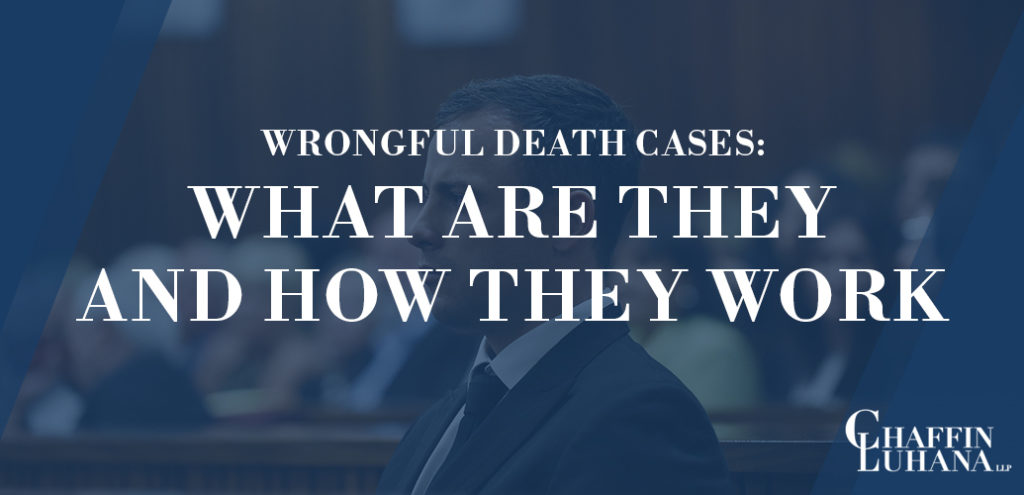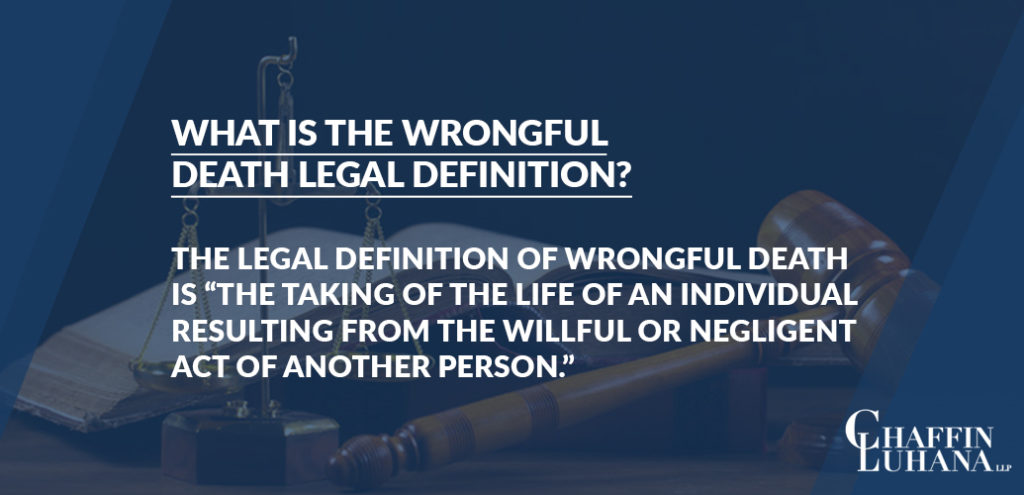Wrongful Death Cases: What Are They and How They Work

When a person is killed because of the negligent acts of another person, his or her family may be able to sue for “wrongful death.” This is a particular type of personal injury lawsuit that allows family members to be compensated for the death of a loved one. Understanding when this type of claim may be brought can help family members understand their legal rights and inform their next steps.
What is Wrongful Death?

Wrongful death occurs when a person who would otherwise have a viable personal injury claim is killed because of the negligent actions or intentional harmful acts of another person. Wrongful death claims may arise in a variety of situations, including:
- Car crashes – E.g. If a victim is killed because of injuries sustained in a car crash, his or her family may decide to file a wrongful death lawsuit.
- Medical malpractice – E.g. If a healthcare provider failed to accurately diagnose a condition, made a mistake during surgery or was careless and provided care below the level of care required, the surviving family may decide to pursue a wrongful death lawsuit.
- Premises liability – E.g. If a person violates local law by not enclosing a swimming pool and a child dies after falling into the pool, the child’s parents may pursue a wrongful death lawsuit.
- Product liability – E.g. A cellphone’s defective lithium-ion battery catches fire and burns the house down while the owner is asleep and dies. The victim’s family may be able to make a claim for wrongful death against the manufacturer.
Wrongful death claims are based on state tort law. Each state handles this type of claim in its own unique way and may include special procedural rules or limits to recovery.
What is the Wrongful Death Legal Definition?

What does wrongful death mean? One legal definition of wrongful death is “the taking of the life of an individual resulting from the willful or negligent act of another person.” The decedent’s surviving family members and beneficiaries may be able to file a wrongful death lawsuit against the individual or company who caused his or her death.
Wrongful death statutes were originally written to provide financial support for widows and orphans when someone caused the death of a person who provided financial support for his family.
What are the Elements of Wrongful Death?

In order to prevail with a wrongful death claim, the victim’s family through their personal injury lawyer must establish certain elements specific to each state’s laws by a preponderance of the evidence. Many wrongful death lawsuits are based on the legal theory of negligence. In many states, these elements include:
- The defendant owed the victim a duty of care
- The defendant violated that duty of care
- Due to the violation of the duty of care, the victim died
- The victim’s family suffered damages
Additionally, to recover, the victim must establish the following:
- The victim had surviving family members or beneficiaries who suffered harm as a result of the decedent’s death
- A personal representative of the decedent’s estate has been appointed
In some cases, wrongful death is based on criminal acts such as murder. In these cases, the elements are usually the same as they are in the criminal case except the burden of proof is lower in the civil case.
How Does a Wrongful Death Lawsuit Work?

States have various procedural rules in place regarding how wrongful death lawsuits are handled, including who can legally file such a case. Most states require the personal representative of the estate to file a wrongful death case on behalf of the surviving family members. Other states allow a surviving spouse, children, parents or next of kin to bring forth a lawsuit of this nature. However, some states only allow recovery for minor children rather than adult children because the adult children are financially independent. It is important to contact an experience personal injury lawyer to determine what is required.
Likewise, some states prohibit parents from recovery if their adult child was financially independent or married. Some states allow anyone who was financially dependent on the decedent to file the claim. Other states provide that survivors may file such a claim and designate who these survivors are.
How To File a Wrongful Death Lawsuit?

The person who is legally eligible to file a wrongful death lawsuit works in close collaboration with a personal injury lawyer. The lawyer prepares a complaint which sets out the legal reasoning for the lawsuit and why the defendant should be held liable for the damages the family sustained. The complaint and summons are served on the defendant. He or she has a limited amount of time to respond to the complaint to avoid a default judgment.
The defendant and victim may then engage in pre-trial discovery. They may enter into settlement negotiations to try to resolve the wrongful death claim. If the parties do not reach a settlement, they move toward a trial.
What Are Typical Wrongful Death Settlement Amounts?

A wrongful death lawsuit payout is based on the amount of damages that the victim and his or her family sustained. Every case is different. The damages a family can pursue vary by state. However, some common damages requested in wrongful death cases include:
- Medical expenses – The family may be able to recover for the medical expenses the victim sustained due to the accident that eventually led to his or her death.
- Funeral costs – The family may be able to recover for the funeral, burial or cremation costs they incurred as a result of the victim’s death.
- Loss of economic support – Survivors may be able to recover for the economic support that they suffered because of the untimely death of the decedent. To compute this type of damages, the family would multiply the decedent’s expected annual earnings and multiply it by the number of years the decedent would have still been working. An economic expert may be retained to factor in variables such as projected raises and inflation.
- Loss of inheritance – The family may be able to recover the loss of inheritance that they suffered because of the death.
- Loss of services – Sometimes the decedent was a homemaker and it is difficult to determine the financial loss. In these situations, the value of the services the individual would have provided are quantified, such as child care services and housekeeping.
- Loss of care – Some states provide for damages to compensate the survivors for loss of care, guidance, love, companionship and nurturing.
Some states allow the decedent’s estate to recover damages for personal injury to the decedent through a separate “survival action.” This can compensate the estate for the pain and suffering and other damages that the decedent sustained after the accident, but before he or she died. Juries may consider such factors as the degree of the decedent’s consciousness, the severity of pain, the duration of suffering and apprehension of impending death when determining the value of these damages.
Damages should be fair and just compensation for the economic loss that the family endured. Juries may be required to consider a number of factors when determining an appropriate amount of damages, such as the decedent’s life expectancy, earning capacity, age and health. Courts usually have the discretion to adjust a jury’s award if they believe the amount is inappropriate. Some states also have caps on the amount of damages that can be awarded in wrongful death lawsuits.
In some wrongful death cases punitive damages are awarded. These are damages designed to punish the wrongdoer and prevent similar conduct in the future. These damages are reserved for cases where the defendant’s behavior was particularly egregious.
